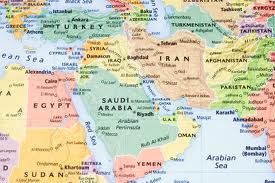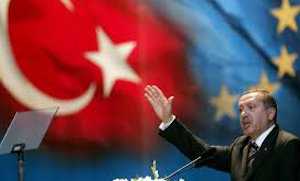
Gulnara Inanch,
Head of Representative Office of Lev Gumilev Center of Russia in Azerbaijan.
Director of Information and Analytical Center Etnoglobus (ethnoglobus.az), editor of Russian section of Turkishnews American-Turkish Resource websitewww.turkishnews.com
Spread and activity of Islam within the last 20 years is the result of globalization policy of the West, particularly the U.S. Its first phase started in the late 80’s of previous century following the collapse of the Soviet Union and activity of Islam in the region.
Different faith and trends of Islam which came to the territories of the Soviet Union from the Middle East and Persian Gulf became power acting against Russia during the Second Chechen War.
After withdrawal of Russian troops from Afghanistan, Taliban regime took the control of most part of Afghanistan as a result of which Islam started to be spread in Middle Asia.
At the same time of opening of the geography of the Former Soviet Union to Islam, big area where the Muslims are settled have traditionally confronted with non-traditional Islam trends.
Later, as a result of events called as «Arab spring» and by intervention of the US and coalition forces, governments in power in Tunis, Yemen, Egypt and Libya were overthrown and Islamic forces seized the power.
In reality, when the U.S made a decision regarding government overthrow in the Middle East, it also caused the processes to be out of control in the region. After military intervention in Iraq, Iraqi regions mostly populated by Shias neighboring with Iran fell under the control of Iran.
Since national consciousness in Arab countries is as the same as religious, tribal consciousness, government overthrow in Arab countries through revolution by the West increased the religious senses of people as a result of which Islamic political parties found a way to the government. Arab countries with limited freedom, living in regimes with closed doors to democracy, linked the freedom with Islam and found it reasonable that political Islam seized the power.
Islamic forces, seizing the power following «Arab spring», contrary to all expectations, at least for the present moment, pursue moderate policy. The fact that new Egyptian government fights against Al-Qaida militants together with official Tel-Aviv in the borders with Israel is another proof of it. However, claims of Egypt’s new government regarding forming “Pan-Arab” empire with capital Quds by evaluating the country as influential state of the region allow us to think that all the processes are about to change towards radicalism.
US military operations in Iraq and governmental overthrow in the Middle East contributed to new phase of Islamic formation. Along with hardline Islam demonstrated by “Hamas” in Palestine and “Hezbollah” in Lebanon, victory of moderate pro–Islamic Justice and Development Party (AKP) in Turkey brought changes to world’s political order. In 1979 Islamic revolution in Iran demonstrated the world specific management order formed by unity of secular and religious laws. Another country in the region claimed to be Islamic center is Saudi Arabia. Thus, Iran, Turkey and Saudi Arabia joined in struggle to distribute their reputation sphere in Islamic world.
Besides, “Arab Spring” has turned the stable competitiveness into armed conflict between the Shia and Sunni Islam. Another reason is the increase of reputation of Iran in the areas settled by the Shias as a result of events that happened in the Middle East.
Location of the main parts of carbohydrates from Persian Gulf to Caspian Sea in the areas where the Shias live densely makes brain centers of Israel and USA to draw attention to this factor. As a result, the projects such as “the Shia Line”, “Combination of resources of Persian and CaspianBasins” has been made. This factor is one of the reasons of political processes in the Middle East caused by conflicts between the Shia and the Sunnis.
On another hand, the processes in the Middle East, especially the destiny of Syria, made reconsider the relations of Islam countries among them. It should be noted that, the effort to eliminate tension of recent years and the observance of warmness in relations between Iran and Saudi Arabia in the Non-Aligned Movement Summit held in autumn of the past year in Tehran are one of the factors certifying this thought. But, this obligatory attitude should not be considered as a break from struggle against the reputation in two regional powers in Persian Gulf and Islam world.
As there possibility of “Arab Spring”, which is now in Syria, is still remained for other Arab countries, to avoid it, Saudi Arabia demonstrates its desire to give to Iran its confidence breaking the coldness ice that continues for a long time.
From another hand, coming into power of Islam Parties instead of overthrown powers in Arab countries and increase of salafi trends’ influence strengthens the Saudi Arabia in the region and demonstrates its twofaced game against Iran. Clear threats are stated by Salafi leaders against the Shiism.
It should be stated that, “Arab Spring” caused protests by Alavis in Turkey and increase of inter-trends conflicts and allowed Al-Qaida to penetrate into this country.
Al-Qaida, supported by Saudi Arabia, struggling for reputation in the region with Iran, having taken advantages of spread of salafism in the region as a result of “Arab spring”, began to increased it’s reputation. This struggle is still in its initial phase. In the future, competition of Islamic trends, in fact, regional countries supporting these trends, will step into new phase.





